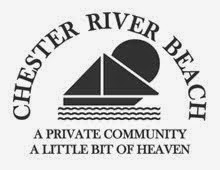Personal Watercraft Safety - Paddling Smart from the Start
When getting ready to head out on your next paddling(kayaking, paddleboarding, etc.) adventure, it is important to remember the following tips to make sure you have an enjoyable day on the water. The safety items you choose to bring will vary from trip to trip. Below are some items to consider, but this list is by no means complete.


The Maryland Natural Resources Police encourage everyone to get educated. One way to make sure you’re prepared for a safe and fun outing would be to try this free online paddling course.
It’s perfect for any age of paddler and it will teach you the basics of paddling safe and smart.
Basic Trip:
- Leave a float plan with family or friends. It should detail where you’re going and when you plan to return.
- Appropriate clothing – always dress for the weather and know what to expect. Temperature changes can occur rapidly. Layers of clothing insulate in cool weather better than a single garment. Cotton is not a good insulator, especially when wet.
- Paddling trip should include planning for the worst case scenario.
- Lots of drinking water.
- Wearable life jackets (personal flotation devices or PFD’s) for everyone on board.
- Proper footwear (closed toe sandals or shoes are best).
- Maps and river guides.
- Sunscreen.
- UV eye protection (choose a good pair of sunglasses and a strap to keep them on).
- Wide-brimmed hat for sun protection.
- First aid kit with matches.
- Dry bag to keep extra clothing, electronics, sleeping bag and other items dry during your trip.
- Rope and/or bungee cords to keep items such as tackle boxes and coolers attached to the canoe or kayak.
- Be sure to be aware of motorized boats, jet ski's and other vessels.
Overnight Trips:
- Cooking and dining utensils (plates, forks, knives, cook stove and fuel, etc.).
- Extra matches.
- Fire starter.
- Food – amount depends on length of the trip and amount of people
- Necessary toiletries (toilet paper, shampoo, soap, toothpaste and toothbrush, etc.).
- Sleeping bag.
- Sleeping pad.
- Tent.
Free online paddling course
Would you like to know more before going on your next canoeing or kayaking adventure?The Maryland Natural Resources Police encourage everyone to get educated. One way to make sure you’re prepared for a safe and fun outing would be to try this free online paddling course.
It’s perfect for any age of paddler and it will teach you the basics of paddling safe and smart.
Life Jacket Regulations for Kids
Effective April 1, 2010, Maryland law states that all children under the age of 13 must WEAR a United States Coast Guard approved Personal Flotation Device (life jacket - Type I, II, III or V) while underway on a recreational vessel under 21 feet in length on Maryland waters. Recreational vessel includes motorboats, sailboats, canoes, kayaks, rowboats, and any other device capable of being used for transportation on the water, when the vessel is being used for other than commercial purposes. The life jacket must be the proper size for the child and must be in good and serviceable condition.
This requirement does not apply when:
This requirement does not apply when:
- A vessel is moored or anchored.
- A child is below deck or in an enclosed cabin.
Also a child under the age of 4 must wear a PFD which features additional safety precautions, as appropriate for an infant, toddler, or young child, so as to:
- hold the child securely within the PFD, including a strap that is secured between the child's legs to fasten together the front and back of the PFD;
- maintain the buoyancy of the child, including an inflatable headrest or high collar; or
- ensure the ready accessibility of the child from the vessel, including a web handle.
This does not apply to a vessel that is moored or anchored or a child who is below deck or in an enclosed cabin.
NEW LAW AS OF OCTOBER 1, 2011
As of October 1, 2010, anyone under the age of 16, operating a motorized vessel 11 feet in length or greater WITHOUT a valid boating safety certificate, must be under the supervision of an individual 18 years of age or older who possesses a valid boating safety certificate or an individual born before July 1, 1972. If an individual under the age of 16 is operating a motorized vessel LESS than 11 feet in length, a person of any age possessing a valid certificate of boating safety can provide supervision.
Information via Maryland DNR website

